Английский язык для специальных и академических целей: Международные отношения и зарубежное регионоведение. Часть 1 - [12]
Unit I. UK: from Empire to Democracy
Unit I. UK: from Empire to Democracy
Edinburgh zoo (two) than there are Tory MPs in Scotland (one). Encouraged by devolution under Tony Blair and cash from Westminster, Scottish social policies have diverged from English ones. University education is free for Scottish students, but not English or Welsh ones; the state pays for a higher proportion of old people's care in Scotland than it does in England and Wales; Scotland has not followed England in freeing schools from bureaucratic constraints.
Yet healthy democracies are flexible enough to deal with regional differences, of which there are plenty within the rest of Britain. The north-east of England and Wales, which both vote Labour, also rail against the Westminster government, just as the Tory stockbroker belt does when Labour is in power. Some of the southern impositions that nationalists object to, such as a “bedroom tax” designed to nudge subsidised tenants out of unnecessarily large houses, are relatively trivial. Others, like Margaret Thatcher's poll tax, are historical.
Nor does Britain's political set-up deprive the Scots of power. The last two British prime ministers, Tony Blair and Gordon Brown, were born north of the border. Scotland has a disproportionately large number of MPs at Westminster. Edinburgh already has an independent legal system and its parliament has power over a wide range of policy areas, including health, education and housing. Its leaders have not exercised their right to vary income tax: that hardly suggests a Scottish administration straining at a leash held tight by Westminster.
A democratic, peaceful, well-governed nation state is a blessing which should not be casually thrown away. That is a strong negative case against change. But there is also a positive argument, to which the campaign against Scottish independence has struggled to give voice: the idea of union.
The United Kingdom embodies the belief that people with distinct histories and identities can live together, and that their diversity makes their culture, their economy and their polity stronger. Tellingly, most members of ethnic minorities describe themselves as British rather than English or Scottish; they instinctively recognise the capacious, liberal identity — one which rests not on narrow nationalism, but on an enlightened concept of nationhood — that the union offers. In a world plagued by ethnic hatred, cultural prejudice and religious violence, that venerable idea should count for more than the real but fleeting disappointments and sense of alienation that the Scots have experienced in recent decades.
If this ideal were undermined by Britain's dissolution, and the country's voice itself were weakened, the amour propre of Britons would not be the only victim. As a permanent member of the UN Security Council and a big noise in the IMF, the G7 and the European Union, Britain can make itself heard in support of values such as human rights, democracy, freedom of speech, the rule of law and clean government that are threatened by the rise of states and ideologies that do not share them. If Scotland were to push off, neither it nor residual Britain would have as much influence as they do today, and the world would be the poorer for it.
Although this newspaper believes that, for all these reasons, the union is worth preserving, we also think it needs changing. As a political expression of liberal values and attitudes, it would be more credible if it were not so centralised. The devolution of powers to Scotland has been a mild extortion racket; and elsewhere the flow has gone to Westminster rather than away from it. But if diverse peoples are to be bound together, they must be given plenty of slack. So instead of trying to buy Scottish votes with more cash, Mr Cameron should devolve far more power to all Britain's cities and regions.
States cannot easily split their way to happiness, and working out how to accommodate differences can improve them. It makes them more tolerant, pluralist and open, and teaches central governments how to relinquish power. When nations cannot bear to hold together, they must of course separate. But Britain has not reached that point. Scottish nationalists like to say, cheerfully, that their nation is capable of standing on its own. It certainly is. That doesn't mean it should.
1. Caledonian is a geographical term used to refer to places, species, or items in or from Scotland, or particularly the Scottish Highlands. It derives from Caledonia, the Roman name for the area of modern Scotland.
2. Adam Smith (16 June 1723 — 17 July 1790) and David Hume (26 April 1711 — 25 August 1776) — Scottish philosophers and economists, the key figures of the Scottish Enlightenment. Adam Smith laid the foundations of the classical free market economic theory.
3. Alexander Elliot Anderson Salmond (English pronunciation: /'samand/; born 31 December 1954) is a Scottish politician who served as the fourth First Minister of Scotland from 2007 to 2014. He was the leader of the Scottish National Party(SNP) for over twenty years, having served for two terms, firstly from 1990 to 2000 and subsequently from 2004 to 2014. Politically, Salmond is one of the foremost proponents of Scottish independence, repeatedly calling for a referendum on the issue. The day after the 2014 independence referendum, at which a majority of the Scottish people voted to remain as part of the United Kingdom, Salmond announced his intention not to stand for re-election as leader of the SNP at the SNP National Conference in November, and to resign as First Minister thereafter. He was succeeded in both capacities by Nicola Sturgeon.
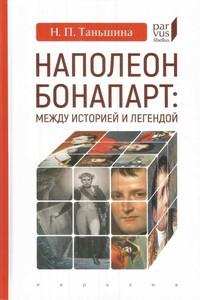
Наполеон притягивает и отталкивает, завораживает и вызывает неприятие, но никого не оставляет равнодушным. В 2019 году исполнилось 250 лет со дня рождения Наполеона Бонапарта, и его имя, уже при жизни превратившееся в легенду, стало не просто мифом, но национальным, точнее, интернациональным брендом, фирменным знаком. В свое время знаменитый писатель и поэт Виктор Гюго, отец которого был наполеоновским генералом, писал, что французы продолжают то показывать, то прятать Наполеона, не в силах прийти к окончательному мнению, и эти слова не потеряли своей актуальности и сегодня.
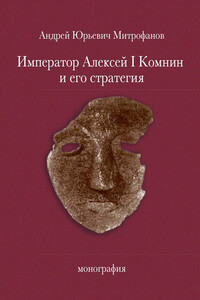
Монография доктора исторических наук Андрея Юрьевича Митрофанова рассматривает военно-политическую обстановку, сложившуюся вокруг византийской империи накануне захвата власти Алексеем Комнином в 1081 году, и исследует основные военные кампании этого императора, тактику и вооружение его армии. выводы относительно характера военно-политической стратегии Алексея Комнина автор делает, опираясь на известный памятник византийской исторической литературы – «Алексиаду» Анны Комниной, а также «Анналы» Иоанна Зонары, «Стратегикон» Катакалона Кекавмена, латинские и сельджукские исторические сочинения. В работе приводятся новые доказательства монгольского происхождения династии великих Сельджукидов и новые аргументы в пользу радикального изменения тактики варяжской гвардии в эпоху Алексея Комнина, рассматриваются процессы вестернизации византийской армии накануне Первого Крестового похода.
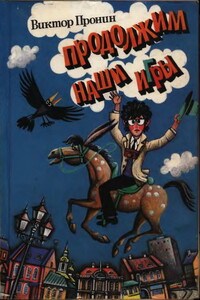
Виктор Пронин пишет о героях, которые решают острые нравственные проблемы. В конфликтных ситуациях им приходится делать выбор между добром и злом, отстаивать свои убеждения или изменять им — тогда человек неизбежно теряет многое.
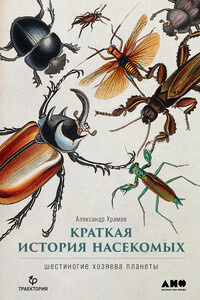
«Любая история, в том числе история развития жизни на Земле, – это замысловатое переплетение причин и следствий. Убери что-то одно, и все остальное изменится до неузнаваемости» – с этих слов и знаменитого примера с бабочкой из рассказа Рэя Брэдбери палеоэнтомолог Александр Храмов начинает свой удивительный рассказ о шестиногих хозяевах планеты. Мы отмахиваемся от мух и комаров, сражаемся с тараканами, обходим стороной муравейники, что уж говорить о вшах! Только не будь вшей, человек остался бы волосатым, как шимпанзе.
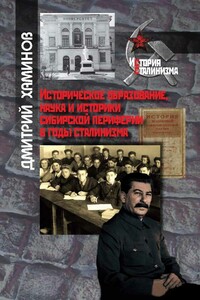
Настоящая монография посвящена изучению системы исторического образования и исторической науки в рамках сибирского научно-образовательного комплекса второй половины 1920-х – первой половины 1950-х гг. Период сталинизма в истории нашей страны характеризуется определенной дихотомией. С одной стороны, это время диктатуры коммунистической партии во всех сферах жизни советского общества, политических репрессий и идеологических кампаний. С другой стороны, именно в эти годы были заложены базовые институциональные основы развития исторического образования, исторической науки, принципов взаимоотношения исторического сообщества с государством, которые определили это развитие на десятилетия вперед, в том числе сохранившись во многих чертах и до сегодняшнего времени.
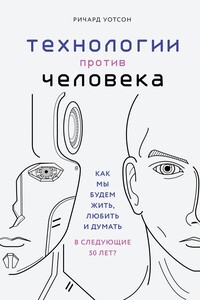
Эксперты пророчат, что следующие 50 лет будут определяться взаимоотношениями людей и технологий. Грядущие изобретения, несомненно, изменят нашу жизнь, вопрос состоит в том, до какой степени? Чего мы ждем от новых технологий и что хотим получить с их помощью? Как они изменят сферу медиа, экономику, здравоохранение, образование и нашу повседневную жизнь в целом? Ричард Уотсон призывает задуматься о современном обществе и представить, какой мир мы хотим создать в будущем. Он доступно и интересно исследует возможное влияние технологий на все сферы нашей жизни.